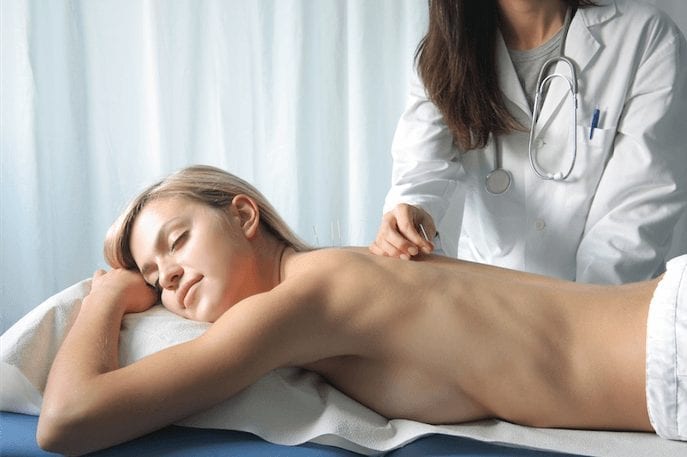Polycystic Ovarian Syndrome (PCOS) is one of the most common endocrine disorders affecting as many as ten percent of women of childbearing age. It is not a disease and it can occur at any age before menopause. Moreover, since its symptoms are often similar to other conditions affecting women, PCOS can go undiagnosed for some time.
With PCOS, the ovaries create an abundance of follicles each month without producing an egg. This disruption in ovulation makes PCOS the most common cause of infertility among women. In fact, many women will often skip their period for months, then start bleeding heavily for days. Other symptoms of PCOS include acne and high blood pressure. PCOS can produce elevated androgen hormones levels–including testosterone, resulting in abnormal facial and body hair growth. Some women develop ovarian cysts and may experience excessive weight gain–despite diet measures and exercise.
PCOS is often temporary, frequently occurring in girls going through puberty as their ovaries try to establish a regular menstrual pattern. PCOS also occurs in women during the transition years of perimenopause (when a woman’s ovaries stop producing eggs and menstruation becomes less frequent).
A major problem associated with PCOS is a rise in high muscle sympathetic nerve activity. This constricts the body’s blood vessels, which can increase a woman’s chances of developing diabetes and high blood pressure, two key contributors to heart attack or stroke.
Alternative Medicine Approach: Acupuncture for PCOS
Many women with PCOS have resorted to taking a variety of medications to ease their symptoms. While these can be helpful, their side effects (malaise, fatigue, nausea, vomiting and diarrhea) can be annoying. This has caused some women to turn to alternative medicine. Chief among these is acupuncture, which helps women with PCOS regulate and manage their periods. Acupuncture has also helped reduce headaches and improve mood and outlook.
In treating PCOS with acupuncture, needles are placed along the acupuncture meridians related to the reproductive system. This helps stimulate the organs, improve blood flow, normalizes hormone levels and promotes the proper functioning of the reproductive system.
Are you interested in becoming a certified acupuncture professional?
Visit the links below to explore our specialized acupuncture programs at a campus near you:
Research Supporting Acupuncture in PCOS Treatment
A study conducted by Swedish researches at the University of Gothenburg, found that exercise and electro-acupuncture treatments could reduce some symptoms of PCOS. Swedish researchers were looking for a long-lasting treatment for PCOS without adverse side effects. During the 16-week study, nine women with an average age of 30 years underwent 14 acupuncture treatments. Acupuncture was applied to the abdominal muscles and back of the knee, points associated with the ovaries. The needles in the abdomen and leg were stimulated with a low-frequency electrical charge–enough to stimulate muscle contractions without resulting in pain or discomfort. The study found that the electro-acupuncture treatments led to more regular menstrual cycles, reduced testosterone levels and reduced waist circumference (but no drop in body mass index or weight). The authors noted that their study had some limitations, including a small sample size.
As with all medical conditions, you should always seek the advice of your doctor before beginning any acupuncture treatments for PCOS.
Swedish study courtesy of online edition of the American Journal of Physiology-Regulatory, Integrative and Comparative Physiology, published by The American Physiological Society.
Featured Posts:
- Chinese Cupping Works Wonders
- Supporting Ovarian Reserve with Chinese Medicine
- Holiday Qi: Acupuncture for Stress, Anxiety and the Holiday Blues
- Pacific College Student Interns Make a Difference for Women with Disabilities
- The Effects of Eastern and Western Medicine on Female Infertility Associated with Advanced Maternal Age: A Literature Review

